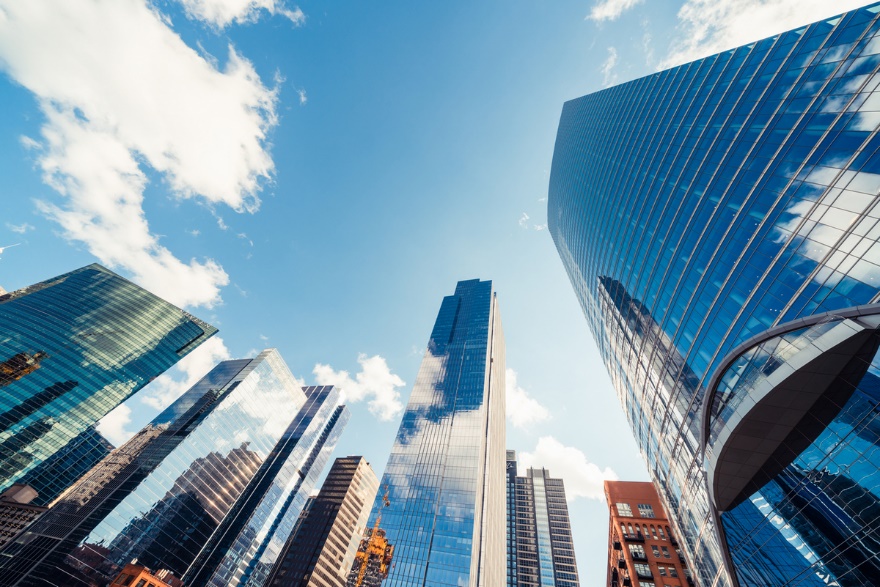Residential sales value in Mumbai projected to exceed INR 2 lakh crore by 2030: JLL-NAREDCO Maharashtra report
Mumbai, as highlighted in the “Unlocking Opportunities with Infrastructure Development Report” launched by JLL at NAREDCO Maharashtra’s Real Estate Forum 2023, maintains its position as one of India’s largest residential markets, contributing 40% to the total residential sales value in the country. The city has demonstrated a robust recovery in 2022, witnessing an increase in both sales value and volume, exceeding the levels observed in 2018. Additionally, post-COVID-19, there has been a significant surge in the launch of residential units in Mumbai, with a remarkable year-on-year growth of ~183% in 2022. Furthermore, with the first half of 2023 crossing 50% of the total launches recorded in 2022, the city’s residential market is poised for further growth – Value of residential sales in Mumbai is expected to cross INR 1 lakh crore in 2023 and go on to breach the INR 2 lakh crore mark in 2030.
According to the report, mid-segment projects still account for most of the market activity in Mumbai. However, with changing customer preferences, there is an increased focus on upper mid and premium segments. Mumbai has been the fastest-moving city in terms of its home purchase affordability index score and became an affordable market with its threshold hitting 100 in 2021. On the back of decadal low interest rates, attractive prices and household income recovery, the affordability was highest in 2021.
The rapid urbanization of Mumbai has led to a larger population residing in areas outside of central Mumbai, creating a disparity between job locations and residential areas. However, upcoming developments will improve east-west connectivity, reduce travel time, and enhance public transportation. The average travel time is expected to decrease by 50% over the next 5 years. These infrastructure developments can transform public transportation in Mumbai, encouraging a shift away from motorized vehicles and increasing the use of metro and monorail. As a result, the public transportation modal share is anticipated to rise from 65% in 2016 to 75% in 2030. Moreover, the metro network will enhance convenience and safety for commuters.
“Maharashtra is amid a remarkable transformation driven by the visionary approach of its government towards infrastructure development. The opportunities that lie before us are boundless, and it is our shared responsibility to harness them, for the betterment of the state and the advancement of the real estate sector. This report, as a collaborative effort between NAREDCO Maharashtra and JLL, serves as a testament to the journey. Through this thought-provoking piece, we aim to not only stimulate reflection but also inspire decisive action,” said Sandeep Runwal, President, NAREDCO Maharashtra and MD – Runwal Developers.
“Individuals have a preference of staying close to office markets. Owing to this, residential clusters in proximity to office markets have flourished and attract steep prices whereas those with limited connectivity have trailed. The residential pockets at the intersection of multiple infrastructure projects such as metro, coastal road, Mumbai Trans-Harbour link (MTHL), Navi Mumbai International Airport are poised to witness surge in demand and clusters in these areas will benefit the most,” said Karan Singh Sodi, Senior Managing Director, Mumbai, MMR, India, JLL.
“While affordability has dropped below the threshold in 2022 and is likely to remain so in the short term given all the macroeconomic headwinds, the large-scale infrastructure development will help Mumbai to continue being a lucrative market. Notably, the planned development of the Mumbai metro corridors and the upcoming airport are both set to considerably benefit residential pockets in their influence zones and ultimately lead to a reduction in the residential price gradient witnessed across submarkets in Mumbai. We foresee the key growth corridors in Mumbai to be towards the Eastern part of the city and the Thane-Navi Mumbai suburban areas,” said Dr. Samantak Das, Chief Economist and Head of Research and REIS, India, JLL.
Four residential clusters with the potential to drive next phase of growth:
· Mulund to become the new Bandra of Eastern Suburbs
· Thane-Bhiwandi best prices will reach Majiwada levels
· Pushpak Nagar to emerge as a residential node
· With the proposed Eastern waterfront development, Sewri & Wadala could become the next Worli
The focused infrastructure initiatives to enhance connectivity of emerging hubs with established economic hubs, ease transportation, and improve overall infrastructure have played a crucial role in propelling Maharashtra’s economic growth, attracting investments, and improving quality of life for its residents. The State has wide array of amenities and connectivity which make it a lucrative market for industries as it offers:
Power: Highest share in total installed capacity of electricity generation in the country at 10.9%. Ranks fifth in terms of installed capacity of renewable energy.
Water transport: Two major and 48 non-major ports. During 2021-22, the two major ports Mumbai Port and Jawaharlal Nehru Port handled ~1,350 lakh MT cargo traffic in total.
Communication: Internet subscriber base of >10 crore and 99,689 mobile phone connections per lakh population.
Air transport: Operational 13 domestic and 5 international airports. Under-construction international airport at Navi Mumbai and proposed international airport at Pune to reduce air-traffic congestion at Chhatrapati Shivaji Maharaj International Airport, Mumbai
Road transport: Boasts India’s largest road network at 3.24 lakh km. The state national highways stand at 18,400 km. The Mumbai-Pune Expressway which became operational in 2002 was India’s first 6 lane, access-controlled expressway. Additionally, the Mumbai-Nagpur Expressway, which is expected to be fully operational by 2024, will reduce travel time between Mumbai and Nagpur from the Air Transport earlier 16 hours to 8 hours.
Also Read: Western Suburbs witness sustained demand for housing









